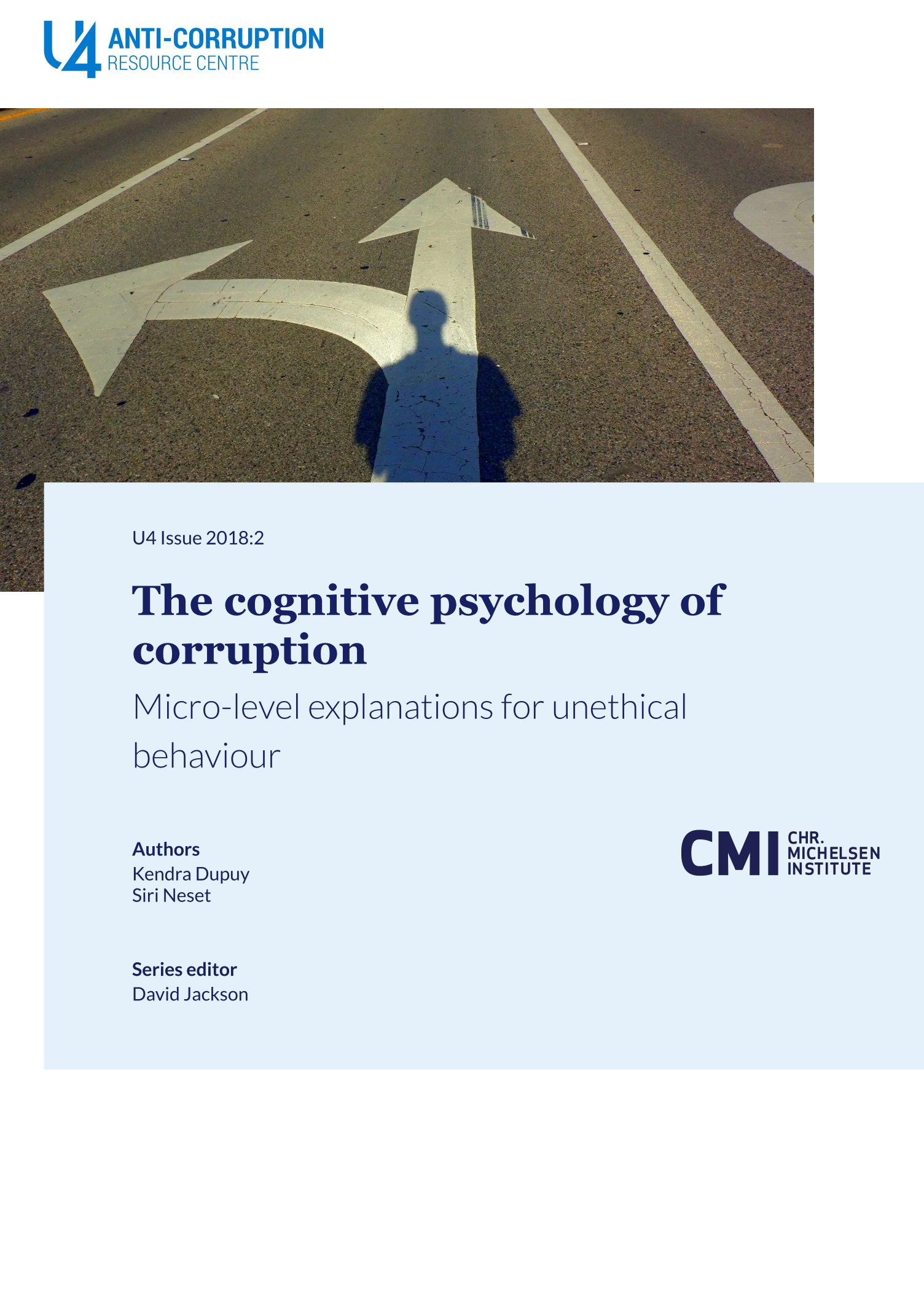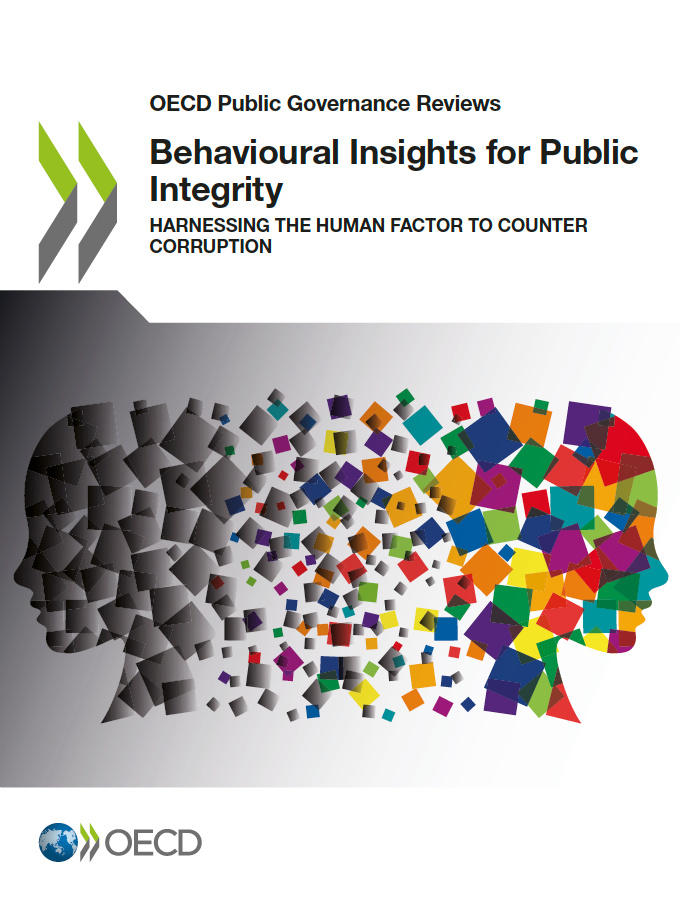Main points
- Individuals holding power are more likely to act corruptly.
- Individuals are more likely to act corruptly when they stand to gain personally, have lower self-control, perceive that corruption will only cause indirect harm, and when they work in organisations where unethical behaviour is not punished.
- Individuals are likely to be more risk-acceptant to offset losses, and risk-averse to preserve gains. Uncertainty is likely to increase the likelihood of acting corruptly.
- Rationalisation narratives seem to make corruption more acceptable.
- Emotions such as guilt may make it less likely for individuals to act corruptly.
- To mitigate these cognitive influences, practitioners should support measures that improve information flows about the costs of corruption, that reward ethical behaviour and set basic integrity standards, and that improve organisational decision-making.
- More research is required on how, which, and when particular cognitive psychological mechanisms make corruption more or less likely; the social psychology of corruption, and how social and cognitive psychologies interplay; the psychological effects of corruption on individuals; as well as case studies of political elites.

